Serious security problems: the protocols of the Oslo Accords are exposed
With the expiration of the censorship, the State released the government meeting protocols in which the Oslo Accords were approved. From the documents, it is evident that the participants expressed their concern about the security risks inherent in the agreement
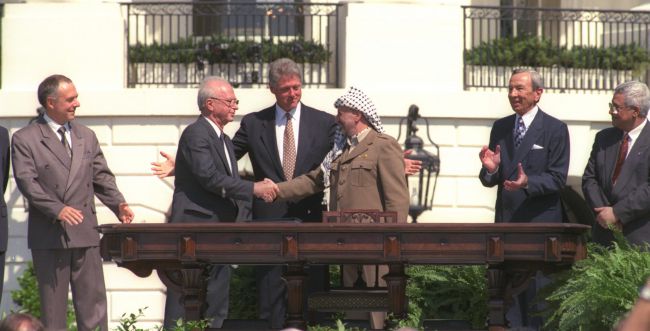
This morning marks thirty years since the government meeting in which the controversial Oslo Agreement was brought for approval by ministers and members of the cabinet. In this historic session, senior IDF commanders, including the Chief of Staff at the time, who later served as Prime Minister of Israel, Ehud Barak, also participated. Leading up to the event, the State's archives released yesterday the protocols of the meeting where members discussed the agreement, its security implications, and even the suppression of right-wing demonstrations in Israel.
From the protocols, it becomes apparent that even the individuals who adopted the agreement with the terrorist organization PLO, led by the mass murderer, Yasser Arafat, had concerns about the various conditions presented in the agreement and the capabilities of the newly established and reinforced Palestinian Authority under the auspices of the American-led accords. These concerns, which in the following days proved to be justified, were even subtle in relation to the grim reality of the Second Intifada.
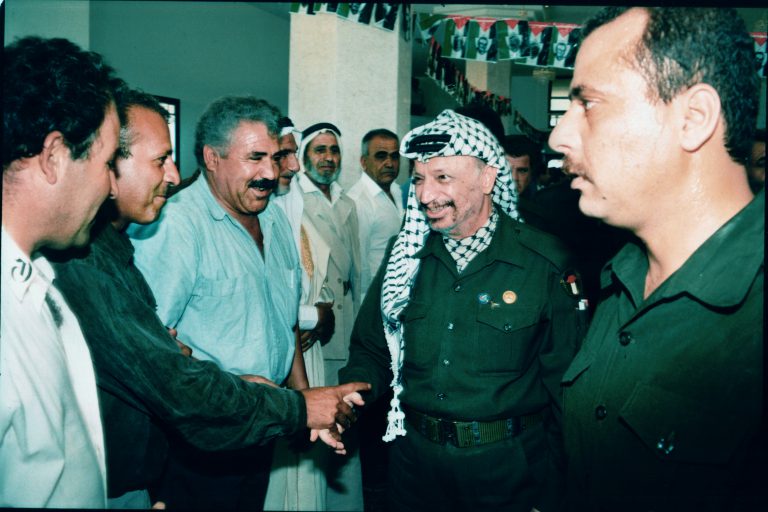
Rabin: "Jewish settlement complicated life"
At the beginning of the meeting, Prime Minister at the time Yitzhak Rabin began: "I want to start by saying, this is not an easy agreement, it is clear that if we had been conducting the negotiations with ourselves, I am sure that the wording would have been much better. There are also unsympathetic phrasings in the wording, I speak carefully. But you have to see all the different elements in a much more comprehensive view."
Rabin referred to the settlement and said: "Jewish settlement, especially in the densely populated areas, complicated life, that was its political goal. It was a political and non-security settlement, without any security contribution, I would say almost the opposite but I won't say that, they come here to demonstrate, but the IDF and the reserve soldiers guard their settlements, not them."
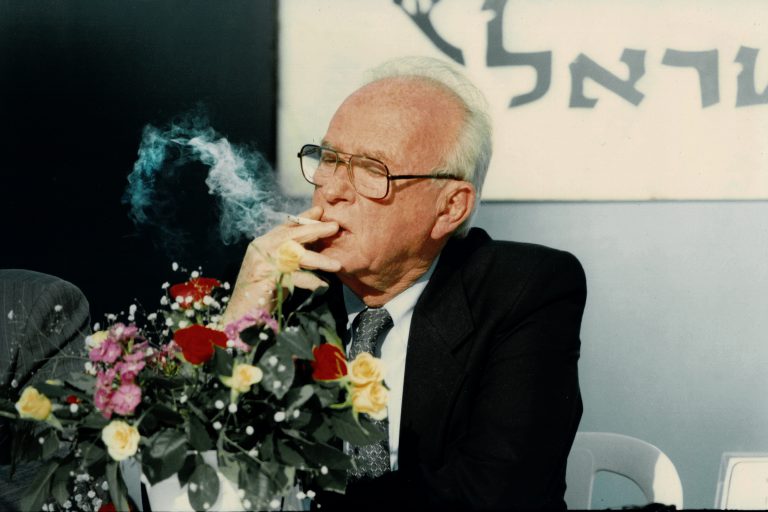
Peres: "Give him a weapon, give him police"
Continuing the session, Rabin explained that "there is an Arab who wants peace, there is a minority of Arabs (Hamas) opposing peace, the minority armed, the majority not armed. I say, let's give the majority the authority to protect itself. In Jordan, the king overcame Hamas." In response, Shimon Peres, who served as Foreign Minister at the time, replied: "I also think (that the PLO will prevail over Hamas), but give it weapons, give it authority."
"Look at the absurd situation," Peres continued, "with the PLO, you give them authority, with Hamas, you even leave them with some guns. It's not important how many guns they have, but rather who is more willing to shoot and kill. The PLO is in a terrible state – they're left without money, without weapons, and without friends. From some point on, we need to ask ourselves, let's say the PLO disappears, what then? Who will we talk to, what will we negotiate about, and with whom will we negotiate?"
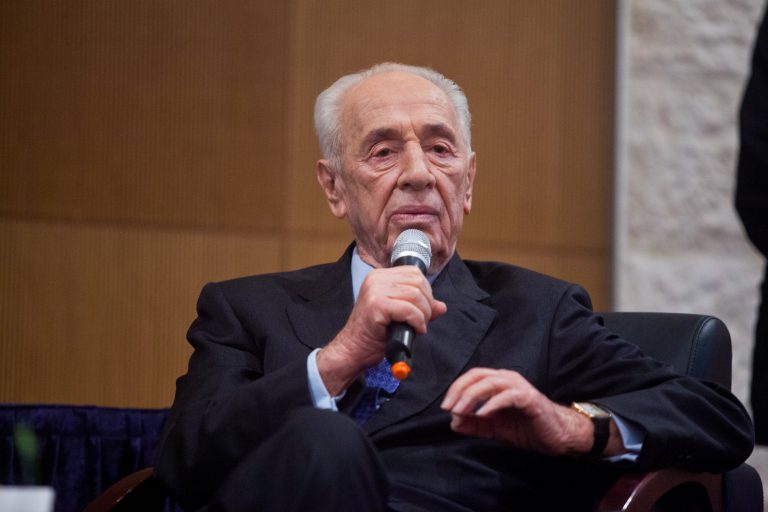
Barak: "From the first reading I notice serious problems"
Continuing the meeting, Rabin addressed those present: "I want to say that I didn't involve the military in all these stages for a simple reason. The main problem is primarily political, and the decision is a political one. In my view, the IDF is capable of providing answers in different situations. Of course, this is a less comfortable situation than the current one from a security perspective, because in the current situation, there is complete freedom to enter any place and do anything."
At this point, the floor is given to the then Chief of Staff, Ehud Barak: "Like you, I have read the documents carefully only in the past day. From a first reading, I discern extremely challenging issues in implementing the security component within this agreement, both in the stages of Gaza and Jericho, as well as in the more distant stages. This is a withdrawal from the Gaza Strip and Jericho while Israeli settlements and movements of Israelis still remain under Israeli responsibility, under the responsibility of the IDF."
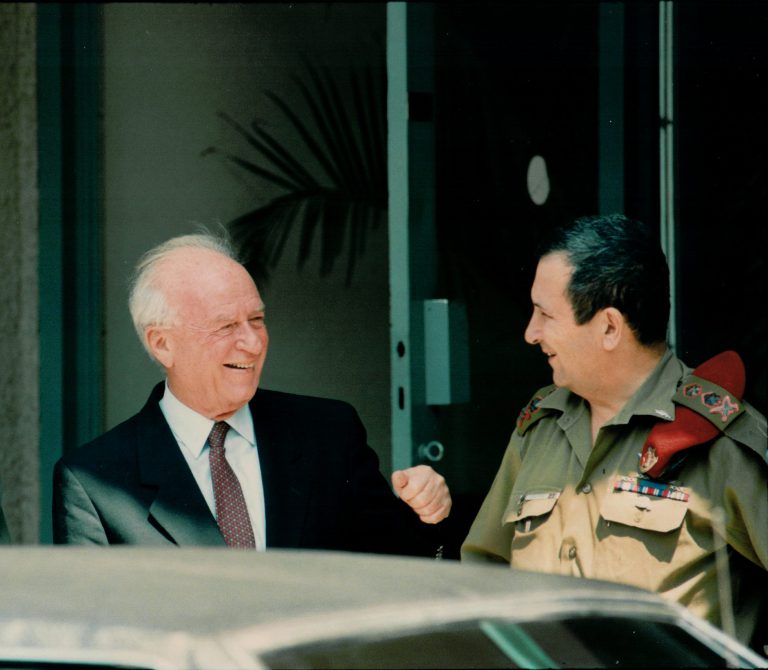
Barak continues and addresses one of the serious topics in the agreement: "The next issue is the matter of the Palestinian police. We are talking about establishing a strong Palestinian police force. It should be noted that there is room here for outsiders, including external police officers – there are already Palestinian police officers who have undergone training in Jordan, and another group is now being trained. They might bring in additional personnel and provide them with short training, including individuals with backgrounds affiliated with Palestinian military organizations or paramilitary groups, such as members of the 'Palestinian Liberation Army'. Minister of the Interior, Aryeh Deri, intervenes and states that "we are still in a situation where we can call them terrorist organizations. There's no need to use many words."
Haim Ramon: "It's the right of the right to demonstrate"
During the cabinet meeting, they also addressed the protests from the right against the emerging agreement. Minister of Health, Haim Ramon, turned to the Prime Minister and said, "I strongly believe that it is important to emphasize that not only do they have the right to protest and use all legitimate means, but the government should ensure their right to do so." Rabin responds, "There's no need to exaggerate."
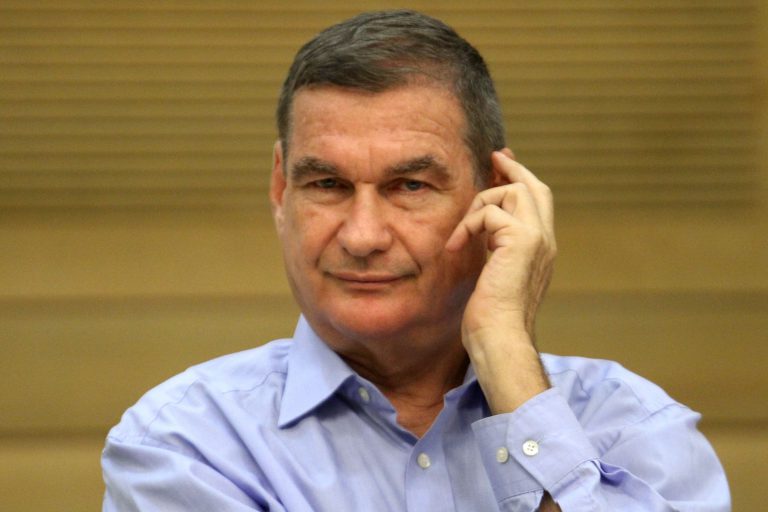
Ramon replied, "I suggest exaggerating, because it's a battle over democracy, and in a democracy, citizens should be allowed to protest through legitimate means, and the authorities should enable them to do so." Rabin responded, "But not with incessant harassment. The issue is what constitutes legitimate means." At the end of the meeting, the government approved the agreement with a majority of 16 votes in favor, while two abstained, one of whom was Minister of Internal Affairs, Aryeh Deri.